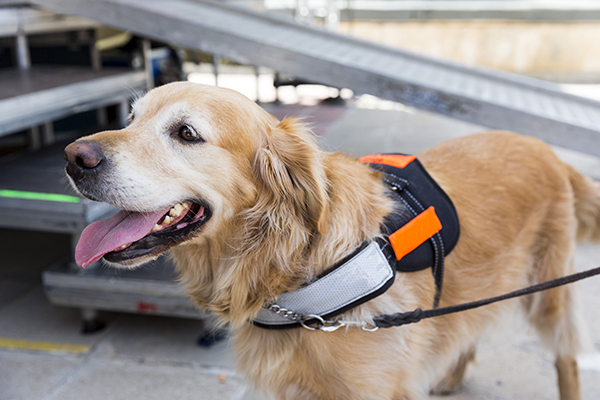Posted: February 23, 2017
Justice is underway for Ehlena Fry’s family as a court ruled that she can pursue a lawsuit against her former public school for refusing access to her service dog. The 12-year-old girl lives with Cerebral Palsy and the animal was used to help her with daily tasks such as using the restroom. Her public school denied her the ability to use her animal even though it was strictly used for performing tasks that allow her to be at school. The rejection only suffered the child’s rights to a proper education. Fry finally transferred to a private school after her old school repeatedly rejected the service animal. Her new school accepted the student and her animal with no hesitation. The family hopes that the case against her former school makes a difference in other people’s ability to use the service animals. The court’s ruling and recognition is a positive sign that we are headed in a better direction for inclusion and accessibility in the country.
Some people misunderstand service dogs and view them as a pet rather than a working animal. They might view the animal as a luxury rather than a vital item for people to live their lives. Children use service dogs to guide them if they are blind, alert them of surroundings or danger if they have hearing issues, to give them a warning of an upcoming seizure and provide them relief from anxiety attacks. Service dogs also can allow children to better socialize by giving them an easy way to begin a conversation with another person or child.
School staff is not required to care for the dog and if the animal is specially trained to aid someone why are they being denied? These animals are on a leash or harness and go through years of manners, obedience and task training. Where common dogs are trained to sit, or stay for around a minute, service animals are trained to keep this position for hours, even when the owner leaves the room. Service animals can create independence for students. Instead of Fry’s family having to pay for a human aid the dog provided what she needed.
Service animals give children the opportunity for inclusion and participation in education. Some children could not fully participate in school if it wasn’t for their service animal. The creatures allow the children to lead a normal life with their peers. It can create respect and understanding to everyone involved in the setting. Children can develop regular relationships and social skills. The right to inclusion gives them the ability to the same education as everyone else.
There is still a long way to go when it comes to having everyone participate in the best practices for inclusion and accessibility. It is shocking that not all school districts are service animal friendly and hopefully this case will help change this.
If you would like more information on inclusion and accessibility contact our care team. We can assist you with a variety of resources and information. Contact us today at (800) 692-4453, we are happy to take your call!






